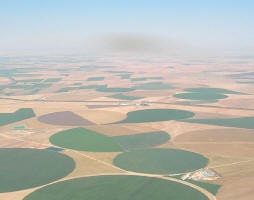 Methods and Tools for Integrated Sustainability Assessment
Methods and Tools for Integrated Sustainability Assessment
Sustainable development has become an overall policy objective in the
European Union. The objective of MATISSE is therefore to achieve a step-wise
advance in the science and application of Integrated Sustainability
Assessment (ISA) of EU policies. In order to reach this objective the core
activity of the MATISSE project is to improve the tool kit available for
conducting Integrated Sustainability Assessments.
The resulting improved tools portfolio will form the primary deliverable of
the project. A major focus will be on developing ISA-modelling tools in
relation to ISA-participatory methods. These, primarily quantitative,
ISA-tools will be made suitable for use by the European Commission and other
actors in the governance hierarchy that seek to apply ISA in a wide range of
contexts. A comprehensive dissemination programme will ensure the optimal
take-up of these deliverables across Europe with a special emphasis on the
new EU member countries. The dissemination programme will be underpinned by
the creation of a web-based portal to disseminate the improved tools
portfolio, and to provide a contact service for ISA practitioners and
stakeholders. The development of these primary deliverables will be made
possible by: utilizing (from the Sustainability A-Test project) a systemic
inventory of current tools and methods for ISA; and by anchoring
sustainability assessment within a rigorous scientific and theoretical
context through the development of a conceptual framework for ISA. The
improved tools portfolio will be evaluated and improved through application
to a set of European case studies selected in order to deliver case-specific
sustainability assessments useful to policy makers and other stakeholders.
MATISSE aims to contribute to the longer-term development of ISA as a
generic, strategic, multipurpose approach to the integrated analysis and
assessment of sustainability strategies and policies.
In sum, the MATISSE-approach forms a cyclical and iterative process, in
which learning, interaction and feedback are crucial elements. Past learning
experiences form the basis for the improved tools portfolio. Results from
the case studies form the input for the further development of existing and
new ISA-tools. These are then used in the case studies, which in their turn
feed back into the development of ISA-tools and methods.
| Project number | 004059 (GOCE) | ||
|---|---|---|---|
| Subject(s) | AGRICULTURE , METHTODOLOGY - STATISTICS - DECISION AID , NATURAL MEDIUM , POLICY-WATER POLICY AND WATER MANAGEMENT , TOOL TERMS | ||
| Acronym | MATISSE | ||
| Geographical coverage | Netherlands, United Kingdom, Greece, Sweden, France, Hungary, Norway, Germany, Austria, Spain, Czech Republic | ||
| Budget (in €) | 0 | ||
| Programme | INCO MED (FP6) | ||
| Web site | http://www.matisse-project.net | ||
| Objectives | MATISSE aims to achieve a step-wise advance in the science and application of Integrated Sustainability Assessment (ISA) of EU policies. In order to reach this objective the core activity of the MATISSE project is to improve the tools available for conducting Integrated Sustainability Assessments. | ||
| Results | MATISSE works on four main project activities: (if you click on the hyperlinks you will get more information on the respective workpackages)
A series of Briefing Sheets informs every six months on the progress within the workpackages. |
||
| Period | [01/04/2005 - 31/03/2008] | ||
 you are not logged in
you are not logged in





